How bad are the bad words?
Clashing with profanity in the online world
February 2024, Paris
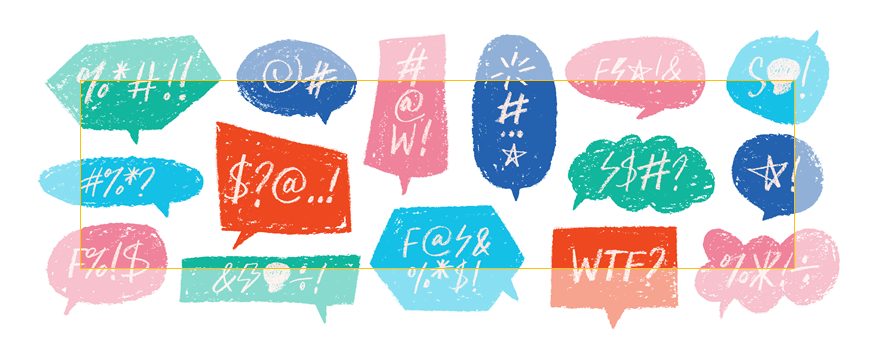
One lesson we learn as children is recognizing that speaking a bad word - perhaps picked up from parents, relatives, neighbors, or TV -, at the most inopportune moment can trigger a collective shock and bewilderment from everyone present, eliciting various reactions. Some may find it amusing, others offended, while unwary parents express concern about the child’s exposure to such language.
Part of the journey toward adulthood and becoming a responsible member of society is acquiring the ability to restrict the use of swear words, be respectful, and mostly exercise better control over when and where the use of profanities is deemed appropriate.
The truth is that nowadays, language infused with a handful of swear words is something that individuals can understand and relate to. It varies across countries and regions: in certain parts of the world, cable TV inundates the living rooms with curse words at such a high rate and frequency that, like antibiotics, these words will lose their power through overuse. If that is the case, will encountering profanity in different situations make you cringe, or have you been watching too much TV?
Let’s consider a situation where a company website (or, software application, TV/online ad, flyer, etc.) incorporates swear words to promote its products or services as a component of their marketing strategy. Clearly, the main goal of any marketing campaign is to attract a broad audience to your brand. While you may attract one group of people, you will surely put off another group.
The following image shows the “About Us” page of the assessfirst.com website and their interesting motto. Upon getting past the initial surprise, one might experience mixed feelings.
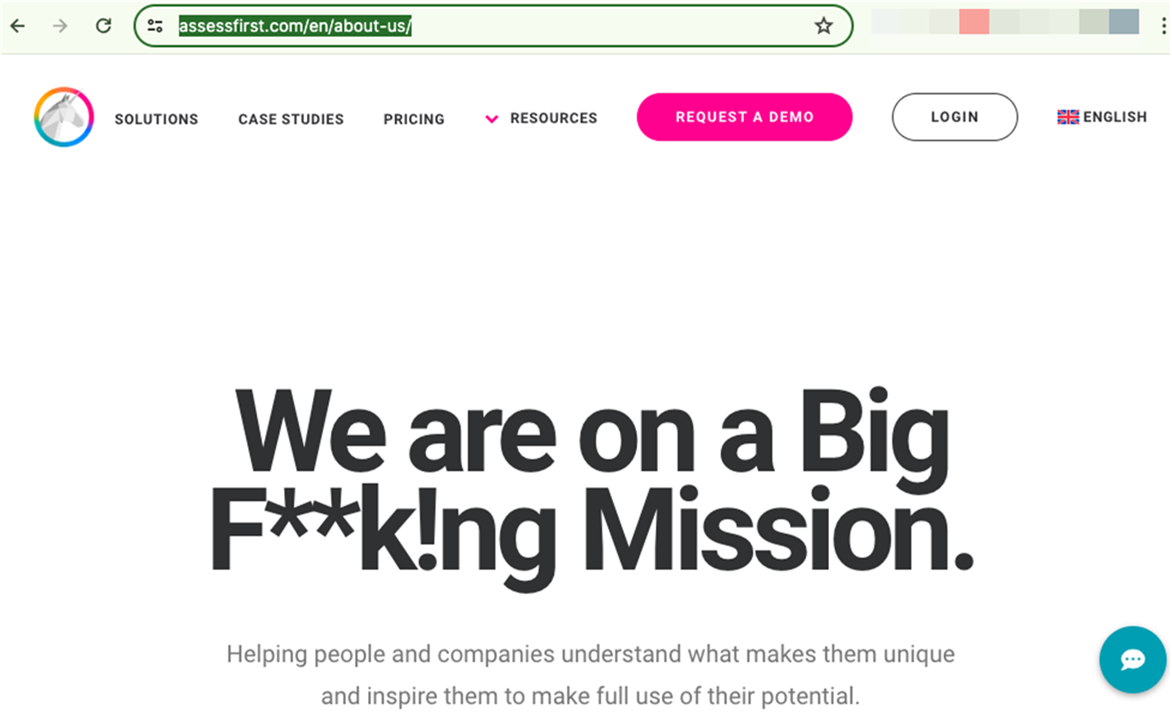
People often use swear words when they express strong attitudes or emotions. Therefore, the audience infers that the speaker/message creator has strong feelings and justifiable reasons to take a social risk by using a swear word.
When a webpage welcomes you with a motto like the one above, some people might not be offended, as they could infer the company purposely expressed strong feelings and conviction about their service. Conversely, some visitors might take it hard, and find the company motto slightly deterrent and dissuading them from continuing their exploration.
Let’s play devil’s advocate and read further about the AssessFirst.com vision:
“We currently live in a world where most individuals don’t really know who they are, much less what makes them unique… So they have a tendency to make decisions – in both their personal and professional lives – that are not always the best for them.”
Personally, such a statement, mixed with the rainbowy unicorn logo and the impactful motto, leads me to the following conclusions:
◉ They use profanity for the sake of appearing cool and trendy;
◉ They use a certain logo symbol along with a color scheme that loudly shouts about their inclusiveness;
◉ They bluntly deliver a message about people’s lack of awareness and their tendency to make poor decisions.
Combined, these factors make it challenging to maintain a positive outlook, and further trust this company services.
An article from SageJournals [The Power of Profanity: The Meaning and Impact of Swear …] states that the inferences about the message creator strong feelings can affect receiver’s attitudes toward the product or service because “people update their judgement about a given object based on their inferences about other’s feelings toward that object”.
Let’s assume that someone is captivated by the vibe of the website and its strong message: they choose to create an account, engage with their products, attend their webinars, follow them on social media, and even share it with friends or colleagues. Meanwhile, they come across negative comments about one of the company’s products, which you’ve already tried out and thought it was great, but now you realize that you’ve only turned a blind eye to some of the product features. Or, during a webinar, attendance dropped by 30% after a company representative provided an answer that arrogantly contradicted their previously stated vision and revealed inaccuracies regarding short term benefits. Will your opinion about the company and their message change? Do you now find their motto offensive and in poor taste?

Profanity as a marketing tool: is it worth it?
While profanity can draw attention, its impact on building traffic and audience engagement may vary from violating norms and offending consumers, especially when it is related to taboo topics, to providing value to readers, when it comes to product reviews.
“[…] Norm violations can have mixed effects: while swear word use in advertising can increase attention and recall (Dahl, Frankenberger, and Manchanda 2003), swear words use in online reviews can decrease perception of the reviewer’s objectivity, limiting their effectiveness to only highly positive reviews.” - article from SageJournals [The Power of Profanity: The Meaning and Impact of Swear …]. Consistent with this perspective, many websites (e.g., Amazon, Trip Advisor) prohibit the use of swear words.
Nevertheless, studies show that the inclusion of unexpected profanity in product reviews or testimonials provides value to readers, influencing their decision regarding the company offer. Consequently, certain startups and online stores, employ a more relaxed “open” system for reviews. This approach allows companies to indirectly benefit from user reviews. It represents astute marketing, as consumers essentially become advocates for company products or services, instilling a higher level of trust (e.g., “after one year this machine works damn well”, “this smart shit connected to the internet made my life easier”). The main question remains though: how much is too much?
Typically, it's the pages like “About us”, “Our team”, or “Our vision” that exhibit the in-your-face swear words as a sales tactic. The Guardian explains it as “a response to the cacophony of the marketplace. […] the only way to draw attention to your brand may be not just to shout louder, but to be really rather shocking. It is the marketing equivalent of Tourette syndrome.”
To confirm the above, I recently stumbled upon the following display while checking the web page of a Data & Analytics Consulting Agency from Minneapolis, called Moxy Analytics :
“As female leaders, we’re not afraid to show our rebel roots.”
This is followed by the photos of the two founders of the company and their rather unique role names: Chief Blow-shit-up Officer and Chief Get-shit-done Officer.

I’m sure they consider themselves authentic by employing this designation; yet, if that doesn’t shout for attention, I’m not sure what would! On the other hand, who doesn’t love confident people?
Sometimes brands or websites employ lighter, occasionally amusing profanity, such as the use of the word ‘crap’. Holy Crap is a high-fiber breakfast cereal, developed in 2009 by Holy Crap Foods company located in Canada. Its name helped it grow to sales of $5.5m a year, proving that rude brand names might be successful.
Velocitypartners.com is a B2B marketing agency that humorously refers to its blog posts and articles as crap. One will not subscribe to newsletter but will choose to “opt into our crap” so they can regularly read more ‘crap’.
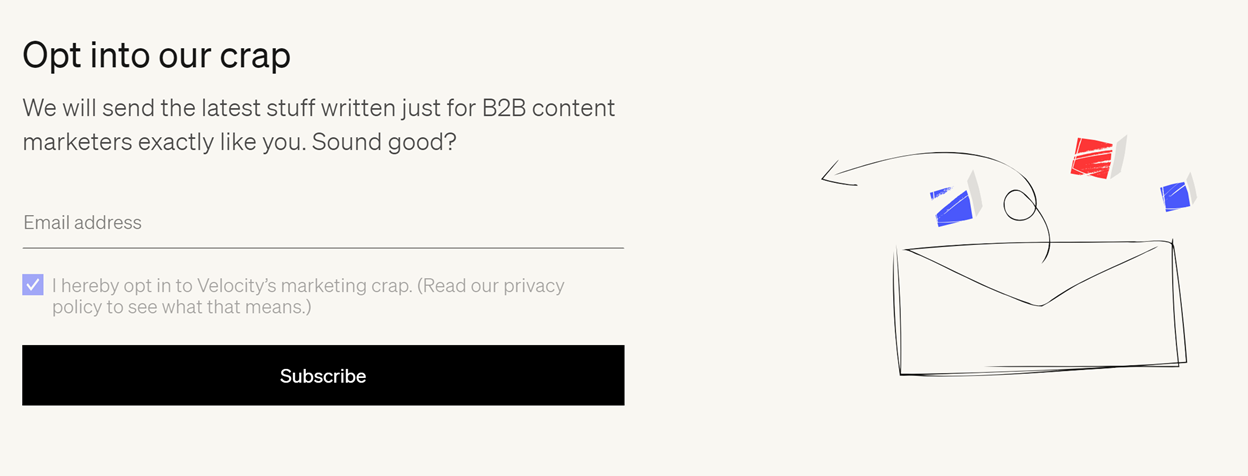
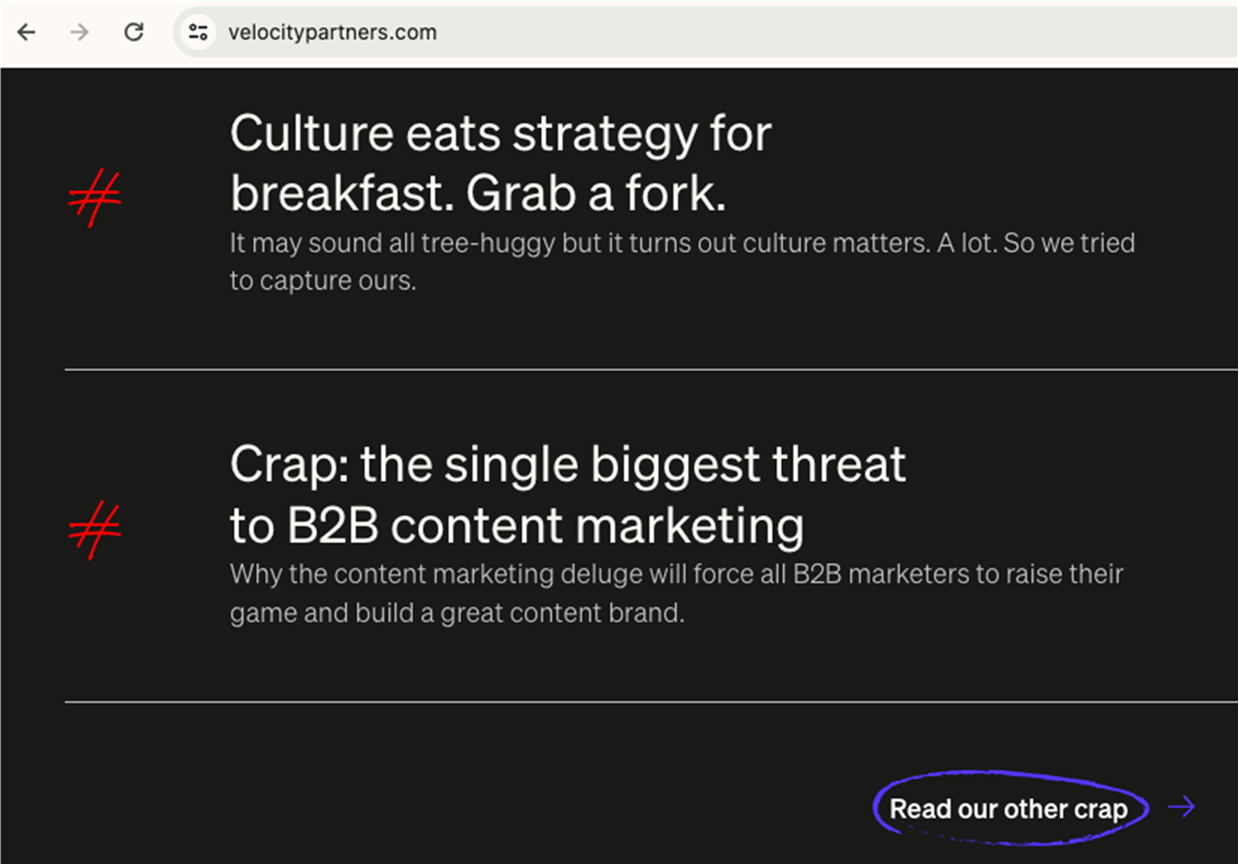
And, finally, a software product, currently advertised solely by its initials: HMA, an acronym for Hide My Ass, a VPN service founded in 2005 in the United Kingdom. The website address cannot pass the profanity filters installed by some companies. We all understand the connotation of the name, even though the company took the humorous approach of selecting Jack, the loveable animal, as its mascot.
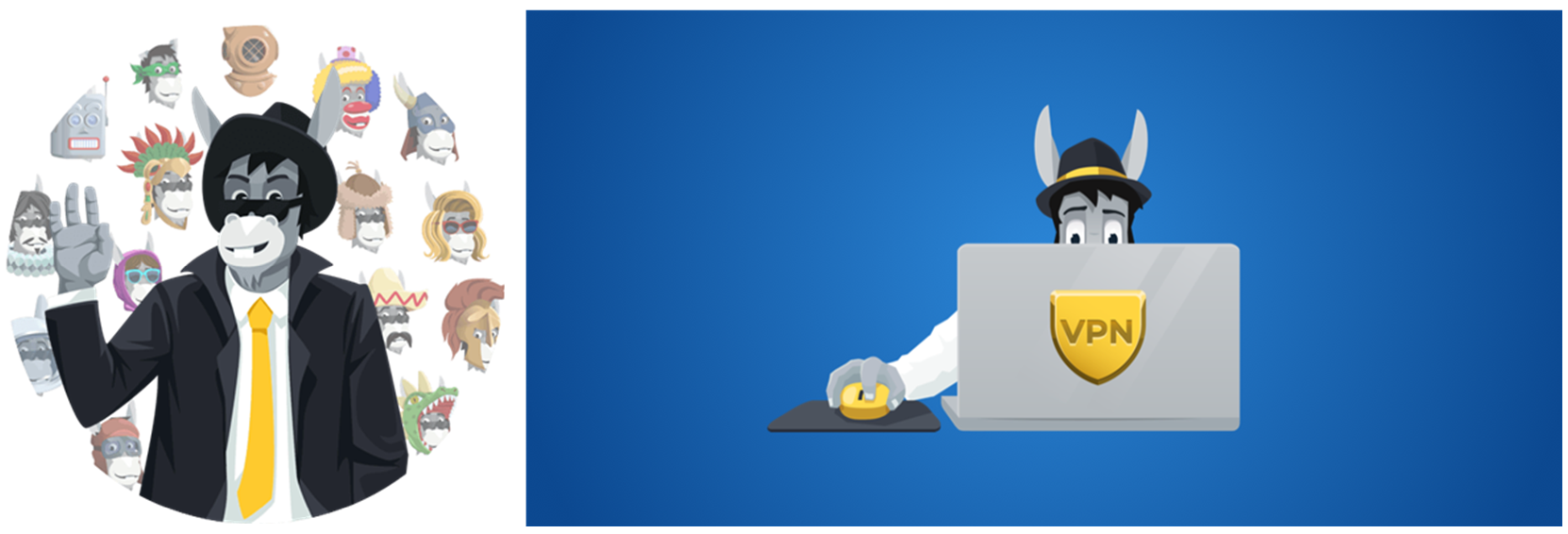
Conclusions
⌘
◉ While there are a few success stories in using profanity to market products or services, the norm in business is to refrain from such language. This is because it has the potential to turn off people who are important to your company, use your services, visit your website, or buy your products.
◉ Clearly, the use of profanity on websites should be carefully considered, taking into account the potential benefits and drawbacks, as well as the specific audience and context.
◉ We do live in an age of disruption. Therefore, adopting bold and authentic promotional strategies has become common place for most companies. That is not without challenges though, such as measuring the impact of visitors not converting to customers while distinguishing between those uninterested in your products and those who were offended. How would you collect feedback from website visitors who left due to offense and may never return? How can you determine if your website will navigate through profanity filters and search engines effectively?
◉ The strategic use of profanity in online contexts might resonate with like-minded individuals, yet it may also project an unprofessional image and pose potential concerns.